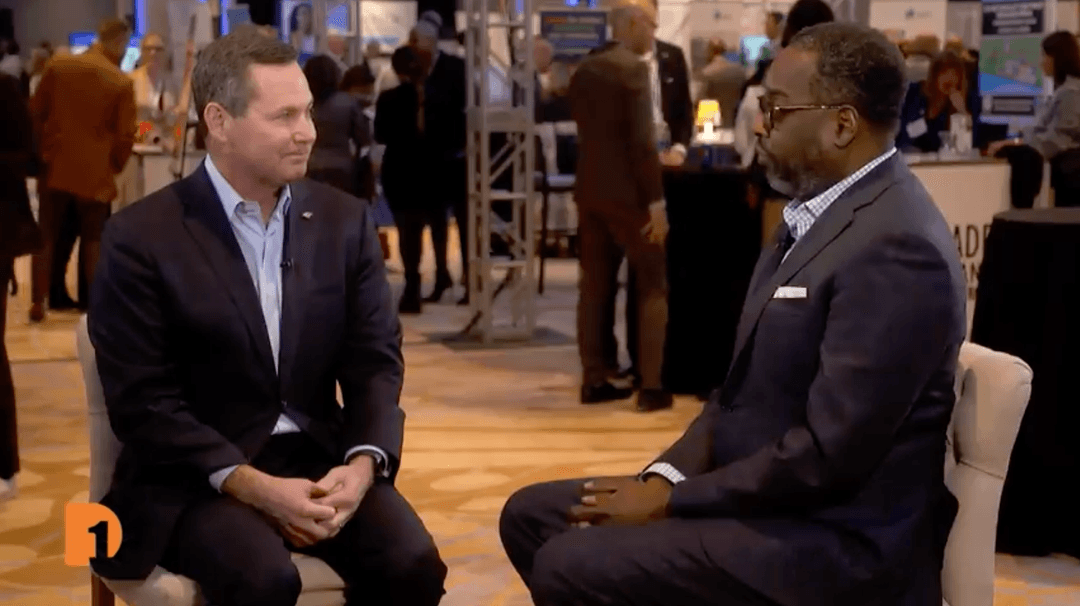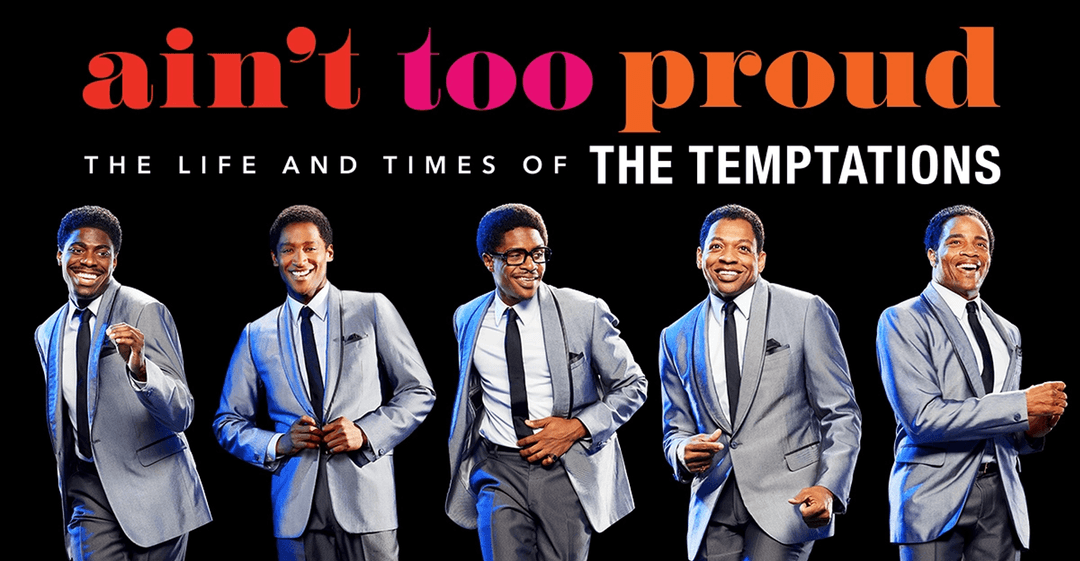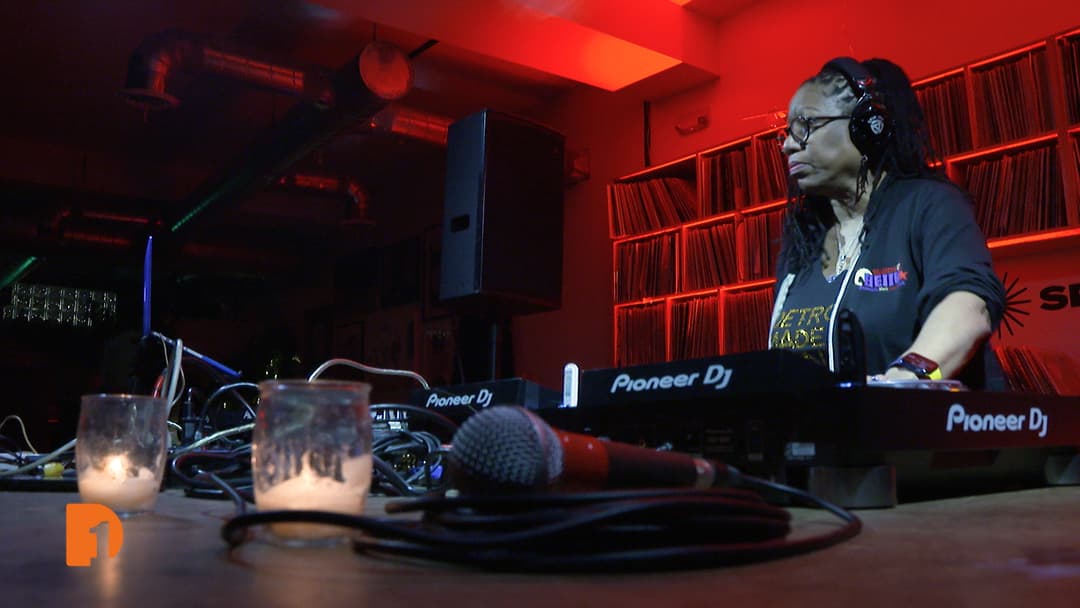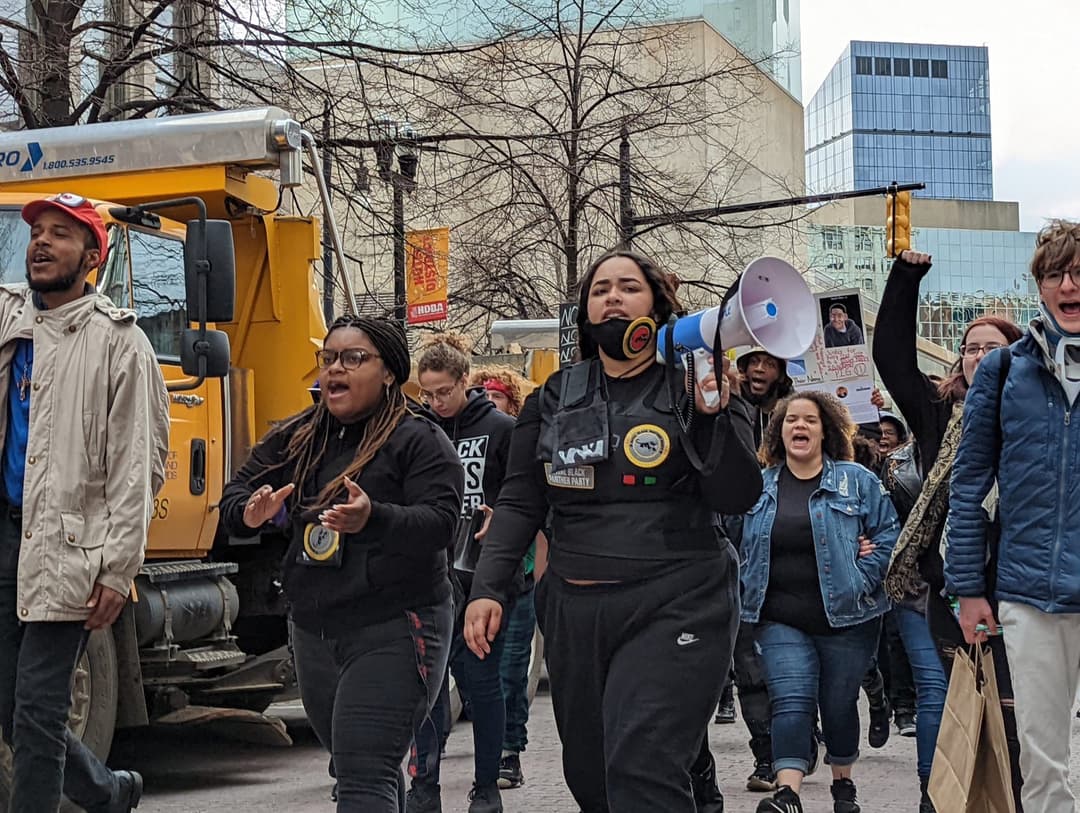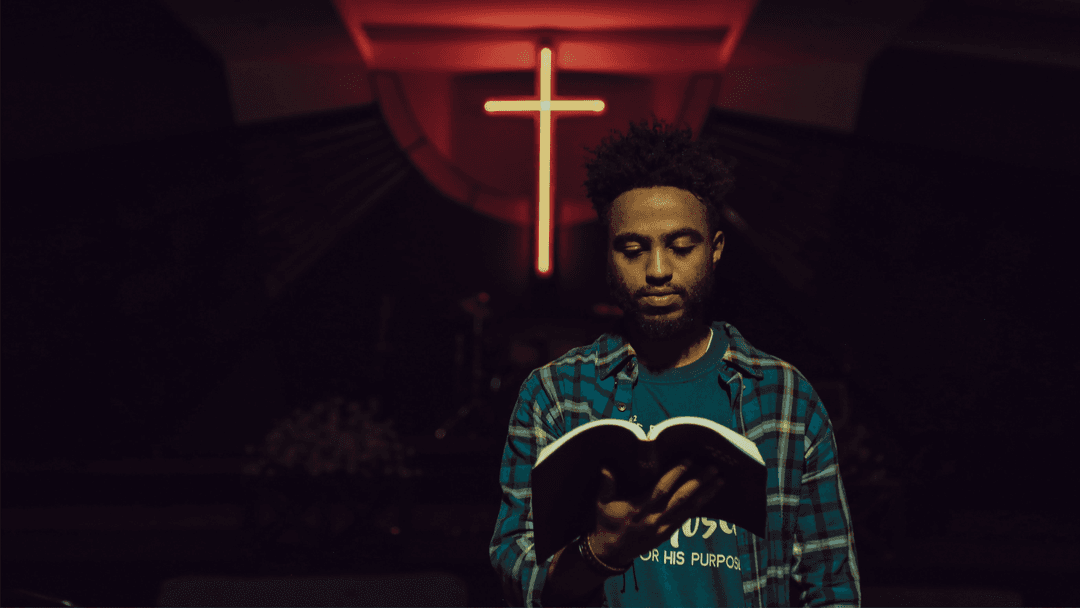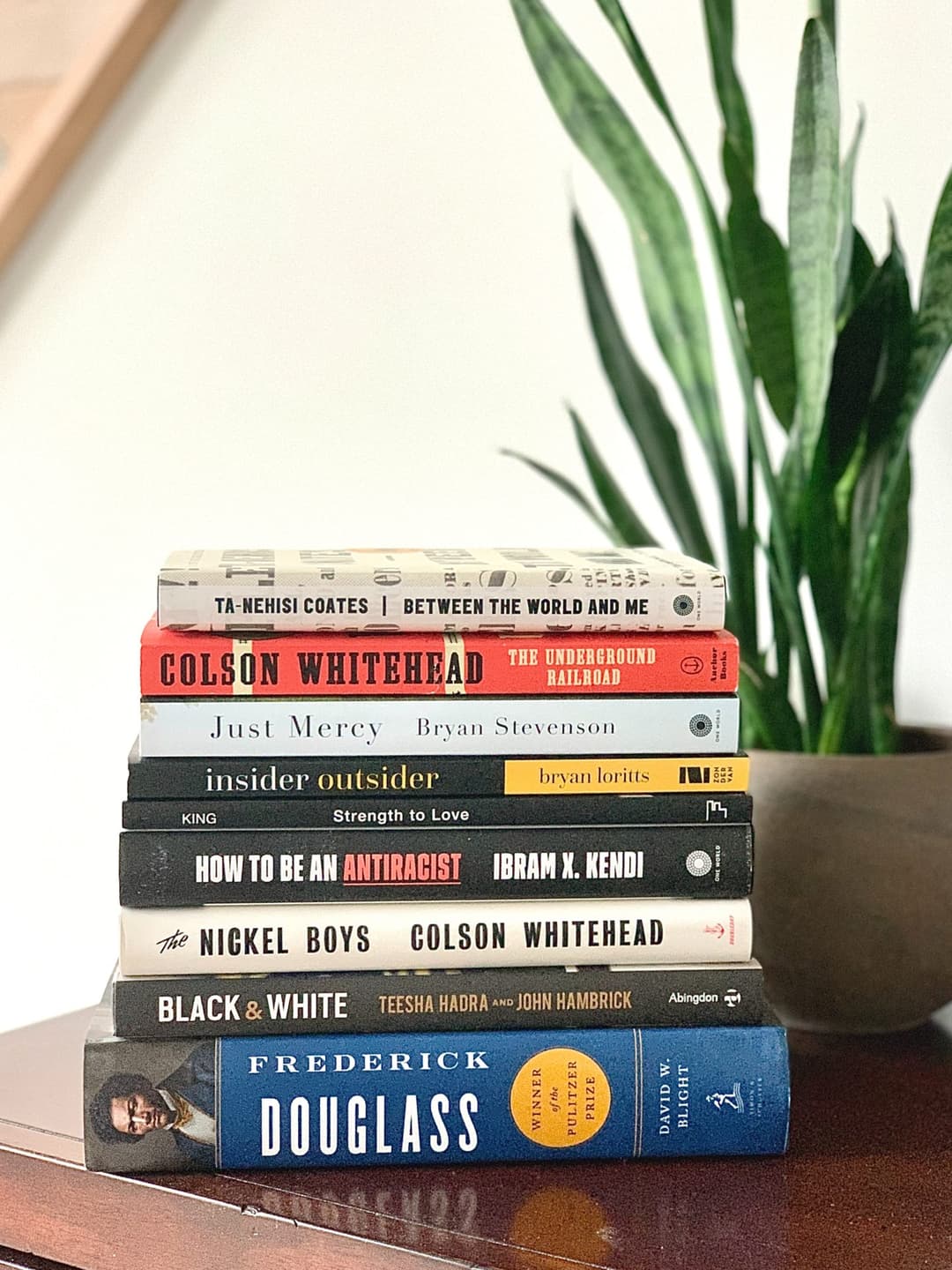Black cowboys & cowgirls: The cultural history behind the Black rodeo
Jun 7, 2022
The Midwest Invitational Rodeo, featuring Black cowboys and cowgirls, will visit the Wayne County Fairgrounds in Belleville on June 10-11, 2022
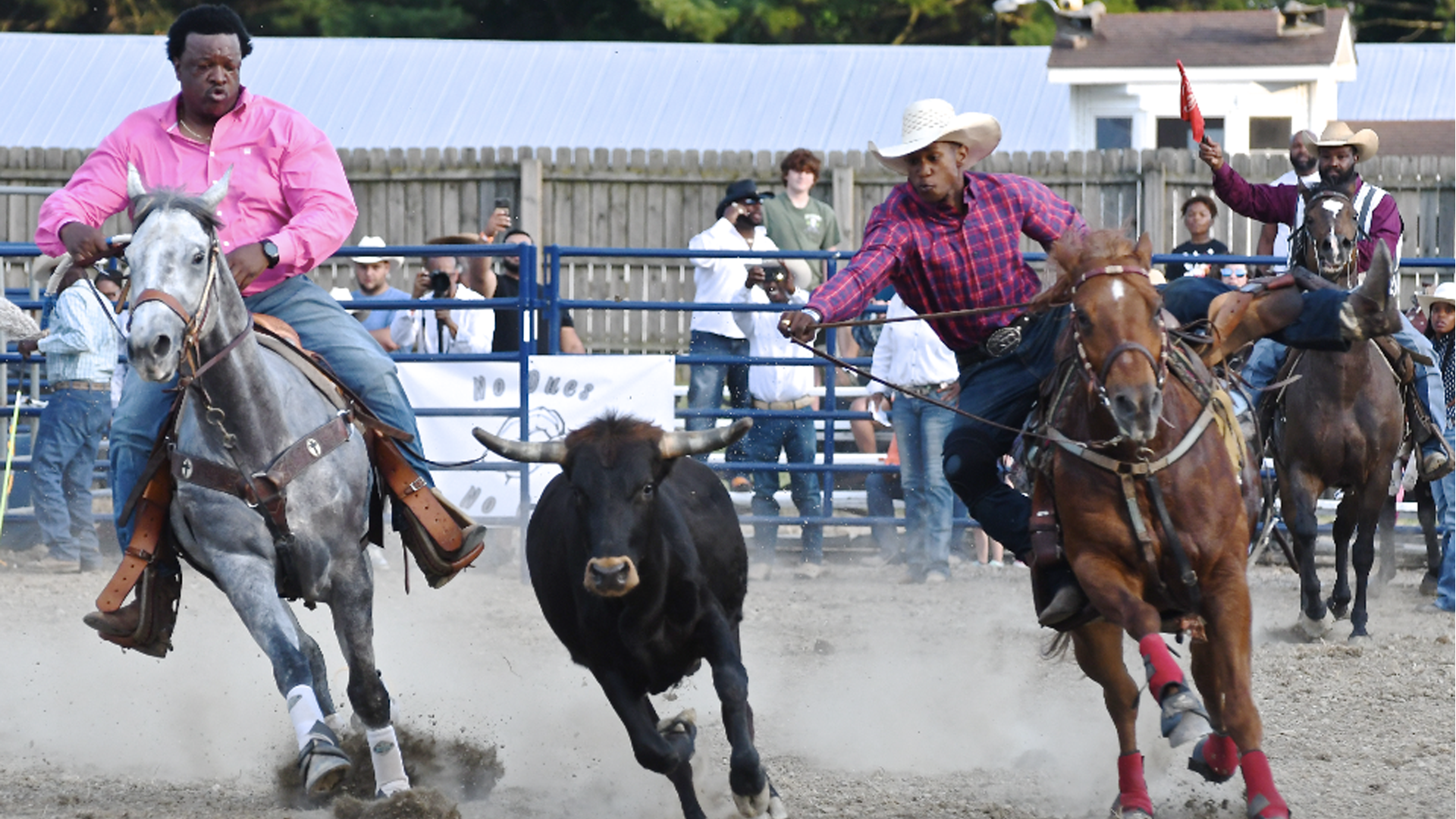
Ahead of the rodeo, “American Black Journal” guest host Trudy Gallant-Stokes sits down with Midwest Invitational Rodeo Founder Nicole Scott and rodeo athlete Staci Russell to explore the rich cultural history of the Black rodeo, a part of Black history that’s rarely told.
They discuss what families can expect from the all-ages event, what it takes to participate in a rodeo, the cultural and educational experiences the Midwest Invitational Rodeo offers, and why it’s crucial to preserve and showcase the history of Black cowboys and cowgirls.
Full Transcript:
Trudy Gallant-Stokes, American Black Journal: Welcome to American Black Journal, Nicole and Staci.
Nicole Scott, Founder & Director, Midwest Invitational Rodeo: Thank you so much.
Trudy Gallant-Stokes: So great to have you here today. And Staci, I saw you riding. You are awesome. Talk about black girl magic. That is incredible. So tell us how you got into rodeo. And I understand this was late in life. Not until your late twenties.
Staci Russell, Rodeo Athlete: Absolutely. It was definitely late in life. I always wanted to learn how to ride a horse. And then someone from church actually introduced me to someone at the Barn at Rouge Park in Detroit, Michigan. And I started taking lessons from him keeping around. And the rest is history. I bought my first horse from him, and I got started into the life of rodeo, and it has been an amazing journey.
Trudy Gallant-Stokes: So still, most of us could not just launch in like that and be so good at it. But you were already an accomplished athlete.
Staci Russell: Yes, ma’am.
Trudy Gallant-Stokes: So tell me about the other things that you were doing that kind of built up to this.
Staci Russell: So growing up, I played basketball and softball. I had an athletic scholarship to Tuskegee University for softball in addition to an academic scholarship. As I got older, I realized that I could not really play basketball and softball forever, especially here in Michigan. Softball is seasonal.
Staci Russell: And when I found horses and the events that you can do and just continue to participate, to whatever age, as long as you could lift up the saddle and get on a horse, you’re good to go.
Trudy Gallant-Stokes: Awesome. So I’m going to bring Nicole in and we’re going to come back and get some more details about your specific riding, Staci. But Nicole, your family has been involved with this for many, many years. Tell me about your background.
Nicole Scott, Founder & Director, Midwest Invitational Rodeo: Yeah. So actually, my family has started Bill Pickett Rodeo. We’re going into our 39th year. I actually became involved with that, helping out my aunt and uncle, traveling with them basically as a hobby. And just I saw something. I saw something that I’d never seen before. And the bug, like Staci said, once that bug gets you it’s, it’s yeah. It’s nothing like it.
Trudy Gallant-Stokes: Awesome. So talk about yeah, like you said, you’ve had a long history. You’ve been doing the Bill Pickett Invitational. So I mean, we learn very little, you know, in history in school about the black cowboys. But just give us a brief kind of history and the names and people we need to know about.
Nicole Scott: You know what? I’m glad you touched on that, because that’s something that I definitely believe in, being the mother of African-American children and also growing up in an area, predominantly white area. I went to private schools the majority of my life. So I moved to Denver. My family and I moved to Denver. And we went to a rodeo and growing up, you, Black History Month wasn’t anything that I was very excited about because we only talked about Rosa Parks and Martin Luther King.
Nicole Scott: Not that those aren’t people that we shouldn’t be proud of and slavery. And so you don’t know anything about it. You don’t hear anything about it. So I went to Denver. And Denver, of all places, they celebrate Juneteenth. I had no idea what Juneteenth was. I, you know, I celebrate the 4th of July. Also to just moving in different areas. You know, my African-American children need something, and I as well needed something to be proud about or proud of.
Nicole Scott: And then you find out that the original cowboy looked like you, you know? And then you realize that there was, The Lone Ranger may not have been, the person that is depicted on when you see on TV. And then I just wanted, I think if we know more, we can do more or if we see things we can get excited about it. You know, when kids see Staci, they’re like, Oh my God, a cowgirl.
Nicole Scott: When they see her come off on that horse and she has on a cowgirl hat and, you know, she’s just, we have pictures of people and we see things. But when it’s us, that gives us a sense of pride that we can do it, too. So being with the rodeos or going around to the different rodeos, the rodeo that we do is a little bit more focused on education. You’ll see a reenactment of a Bass Reeves. You’ll see a Stagecoach, Mary, you’ll see a Bill Pickett.
Nicole Scott: So it’s little subliminal messages that you’re getting that you don’t actually realize that we’re educating you to. You know, and then you see this competition and it’s so fast-paced that you know, people will want to think that they’re going to leave. And Staci will do something and it’s seconds. It’s not a minute. You’re not going to leave out and come back in and catch her.
Nicole Scott: No. If you blink, it’s done, you know. So we have the best athletes coming in. And just to know that these people that look like us, you know, you could do that. You could be that. You can make a career out of it. This is what Staci does. She travels all over the country. And she doesn’t just compete in rodeos that are African American. She has worked to the level where she’s able to compete in any rodeo. It’s just not, you know, women of color. It’s any rodeo. She competes with the best of them.
Trudy Gallant-Stokes: Absolutely. So I’m going to go back in a minute to a little bit more of that history because we really need to know and learn those important names in history. But Staci, I was not even familiar with what you do. So describe it. And then when I saw it, I thought, man, that’s scary. I mean, you’ve got to have a lot of nerve and a lot of confidence to get out there and race around those barrels like you do.
Nicole Scott: The speed that she goes. I mean, she is incredible.
Trudy Gallant-Stokes: So describe what it is that you do and what the goal is.
Staci Russell: So the event that I compete in is called barrel racing and three barrels are set up and you run in a cloverleaf pattern. So you go around each barrel, fastest time wins. And that is definitely what everybody strives for is to set the pace so that you can essentially earn money doing it. What I enjoy most about it would be is such an adrenaline rush and like you said, you have to have a lot of confidence.
Staci Russell: You have to definitely have a positive mindset, stay confident in everything that you’re doing because the littlest of things can knock you off your game and can mentally get in your head. Just like any athlete. So I would definitely. I take my horse around to different schools. So I’m an educator by day, right? And I take my horse to different schools. Just to expose kids, to expose our kids to different sports because they don’t know.
Trudy Gallant-Stokes: Tell us what your horse’s name is.
Staci Russell: My horse’s name is Reese’s Cup. Like the candy. He is super sweet. He is an old man now. He is 18 years old.
Trudy Gallant-Stokes: Wow. That’s pretty old in horse years?
Staci Russell: Yes, I’ve had him since he was nine. And he’s been my first and only horse.
Trudy Gallant-Stokes: Wow.
Staci Russell: Yes.
Trudy Gallant-Stokes: So obviously you don’t just jump up and start doing that barrel race. You had to work your way into that. So first of all, like you said, you had to learn how to ride a horse. And then what were the steps that got you up to this point? And then when you were looking at these different activities, what made you pick that particular one?
Staci Russell: Well, initially I wanted to learn how to just ride a horse, and the steps for that was just being consistent and taking lessons and definitely saddle time. You have to ride consistently on an everyday basis just to get to a level where you are secure and confident and safe on a horse. Outside of that, when I started to move into the progression of trying to compete, you have to have horsepower.
Staci Russell: So every horse is not a barrel racing horse or a steer wrestling horse. Like, just you have horses and they have specific jobs that they do. And so my horse, he was a barrel racing horse and a pole bending horse. He was trained for those events. So that helped me out. Honestly, I got lucky with my horse. That is a crucial part in the partnership of becoming a great competitor. And I’m not going to say that I’m great. I’m good.
Trudy Gallant-Stokes: Looks like you’re pretty good.
Staci Russell: There’s always room for growth. But definitely, he’s been a great starter horse that has taken me to different levels. I’ve won the Mid-State Championship. Barrel Racing Championship for 2017 and it’s been an amazing experience. But for sure practice is crucial.
Trudy Gallant-Stokes: As we talked about the history that we talked about Bill Pickett and he started a particular form of rodeo and was credited with being kind of the father of that. So talk about that. And as Staci mentioned, there are different, you know, types of performances, different skills required for whatever competition you’re in.
Nicole Scott: Yeah. So you know what, Staci would be more into the rodeo and the different skills and the different techniques. You know, I am actually more of the promoter. People that bring it together. More educating, making sure that people are singing the Negro national anthem. What Bill Pickett did, he just started, an event that we are doing years later.
Nicole Scott: And it was just something fun. It was just a fun competition or just it didn’t even start as a competition, it just started as an activity, you know, that he did to show his strength and the might that he does or the might that he had.
Trudy Gallant-Stokes: Awesome. Well, I’m going to let you wrap up at the end, Nicole. And talk about this great invitational that’s coming to our area very soon. But Staci, I’m curious, what’s the reaction of people when you come in? I’m sure they probably look at you and say, oh, she doesn’t know what she’s doing. And then all of a sudden.
Nicole Scott: Yeah Staci, tell us about that. How competing in a man’s world and having to deal with the guys and how you have to boss up and tell them and show them. Don’t let her smile, you know what? Don’t let her smile fool you, Staci, when she gets out there, she is intense. Nobody, she’s not anybody that you play with and she gets the respect of the guys as well.
Nicole Scott: You know, and what she does, she knows her horses and the things that she, the places that Reese Cup goes. Reese Cup goes to Chicago for special treatment and water baths and all these other things. So Reese Cup is not just a normal horse. And like I said, Staci is just an amazing, amazing athlete.
Trudy Gallant-Stokes: So tell us about how people can see you right here in the metro Detroit area.
Staci Russell: So at the rodeo, June 10th and 11th at the Wayne County Fairgrounds, I will be competing there and barrel racing. So I will run Friday night and I will run again Saturday night. So everyone has an opportunity to see me for sure, once, maybe even twice.
Trudy Gallant-Stokes: All right. And Nicole, tell us about the entire event. And there’s a great website where people can go and learn more. I mean, this is talk about a source of cultural pride. This is an awesome occasion.
Nicole Scott: Thank you so much. You know what? Again, going back to Staci, you know, our rodeo contestants are approachable. You were able to talk to them, you’re able to touch them. They are walking in, you know, with on the ground, you know, saying hello to the kids. Staci, being an educator, she brings her kids from the school that she works at and allows them to see.
Nicole Scott: And Michigan State is a school that has a rodeo team, but we don’t know that. Their agricultural school, they’re veterinarian school. If we can show, show them or show our children, they can be it or if they can see it, they can be it. Touching, feeling. We’re able to do all of that. We’re able to, we have something like a mechanical bull.
Nicole Scott: We have the forage that’s out there. We have so much to offer that it’s not just a rodeo. So we encourage people to get there early because once that show starts at seven, it’s nonstop. So we invite people to get there probably about four or five, and then they can fellowship and meet wonderful people like Staci and seeing her prepare and getting ready for, you know, the events that she has coming.
Trudy Gallant-Stokes: Sounds like a great event, wonderful for families. And people are always asking for activities you can involve family. Something that everybody can do together. So get out there, enjoy. And good luck to you, Staci. I know you’re going to be awesome. And thank you so much, Nicole, for making sure that this history is being preserved and passed down and that young kids can now learn about the black cowboys.
Nicole Scott: I thank Staci for competing. Thank you so much.
Staci Russell: Thank you.
Trudy Gallant-Stokes: Thanks for joining us.
Stay Connected:
Subscribe to Detroit PBS YouTube Channel & Don’t miss American Black Journal on Tuesday at 7:30 p.m and Sunday at 9:30 a.m. on Detroit PBS, WTVS-Channel 56.
Catch the daily conversations on our website, Facebook, Twitter and Instagram @amblackjournal.
View Past Episodes >
Watch American Black Journal on Tuesday at 7:30 p.m. and Sunday at 9:30 a.m. on Detroit Public TV, WTVS-Channel 56.
Stay Connected
Subscribe to Detroit PBS YouTube Channel & Don’t miss American Black Journal on Tuesday at 7:30 p.m. and Sunday at 9:30 a.m. on Detroit PBS, WTVS-Channel 56.
Catch the daily conversations on our website, Facebook, Twitter, and Instagram @amblackjournal.
Related Posts
Leave a Reply
Your email address will not be published. Required fields are marked*


